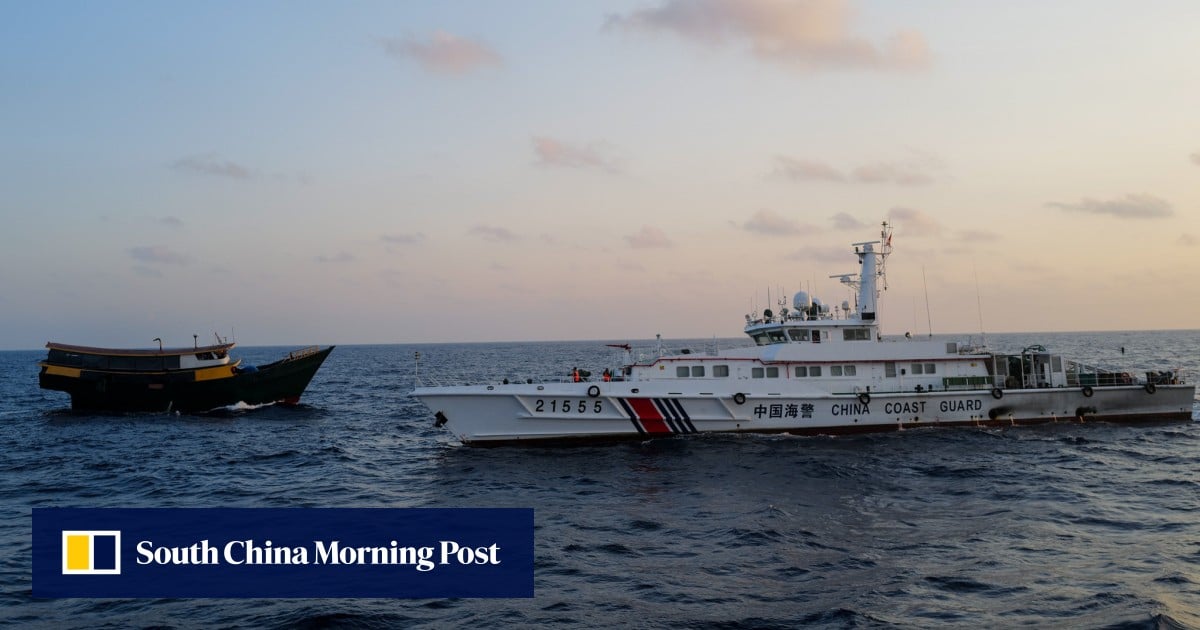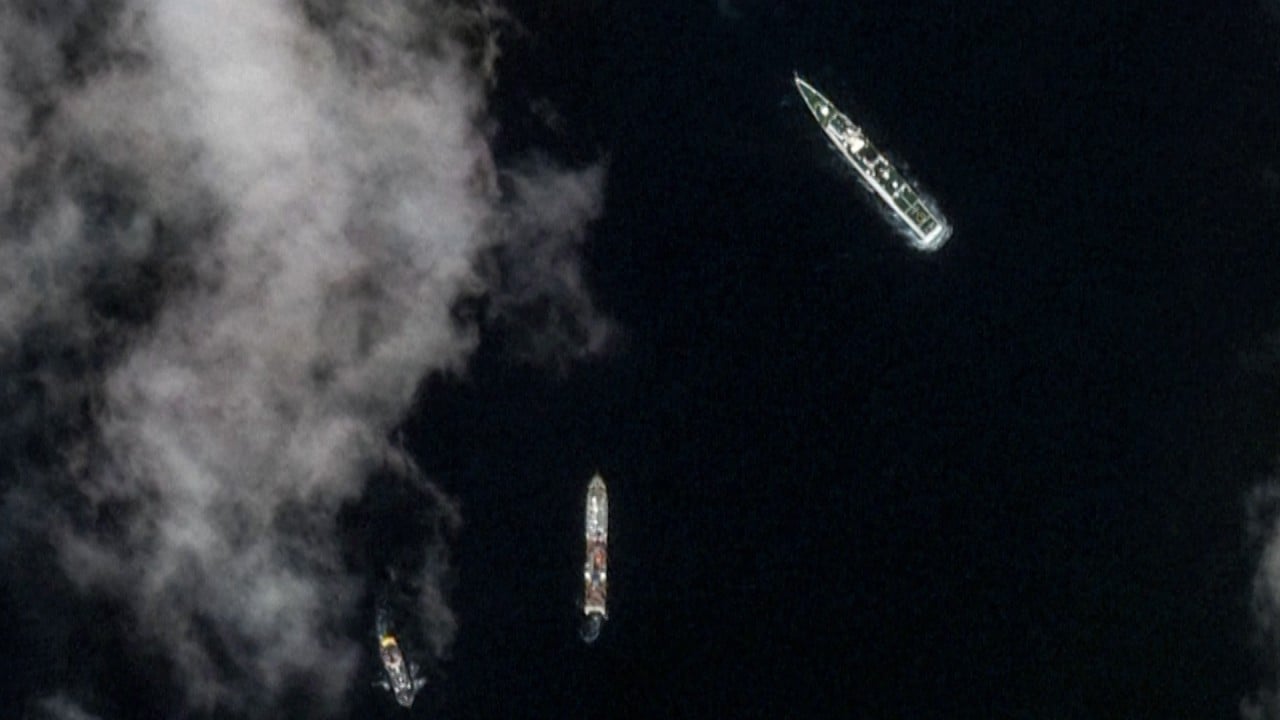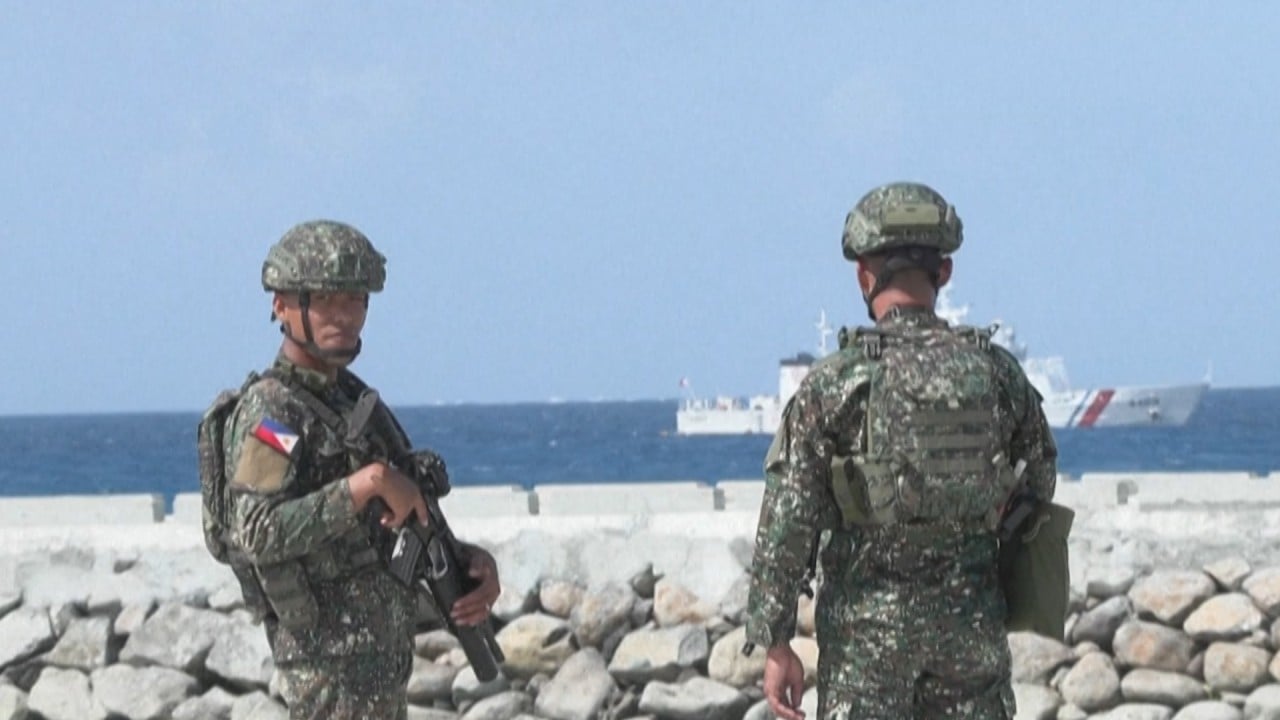The Philippines and China have been locked in a months-long war of words and coastguard skirmishes over territory in the South China Sea, with the Second Thomas Shoal, where an old warship was grounded by Filipino troops to establish their position, becoming a major flashpoint.
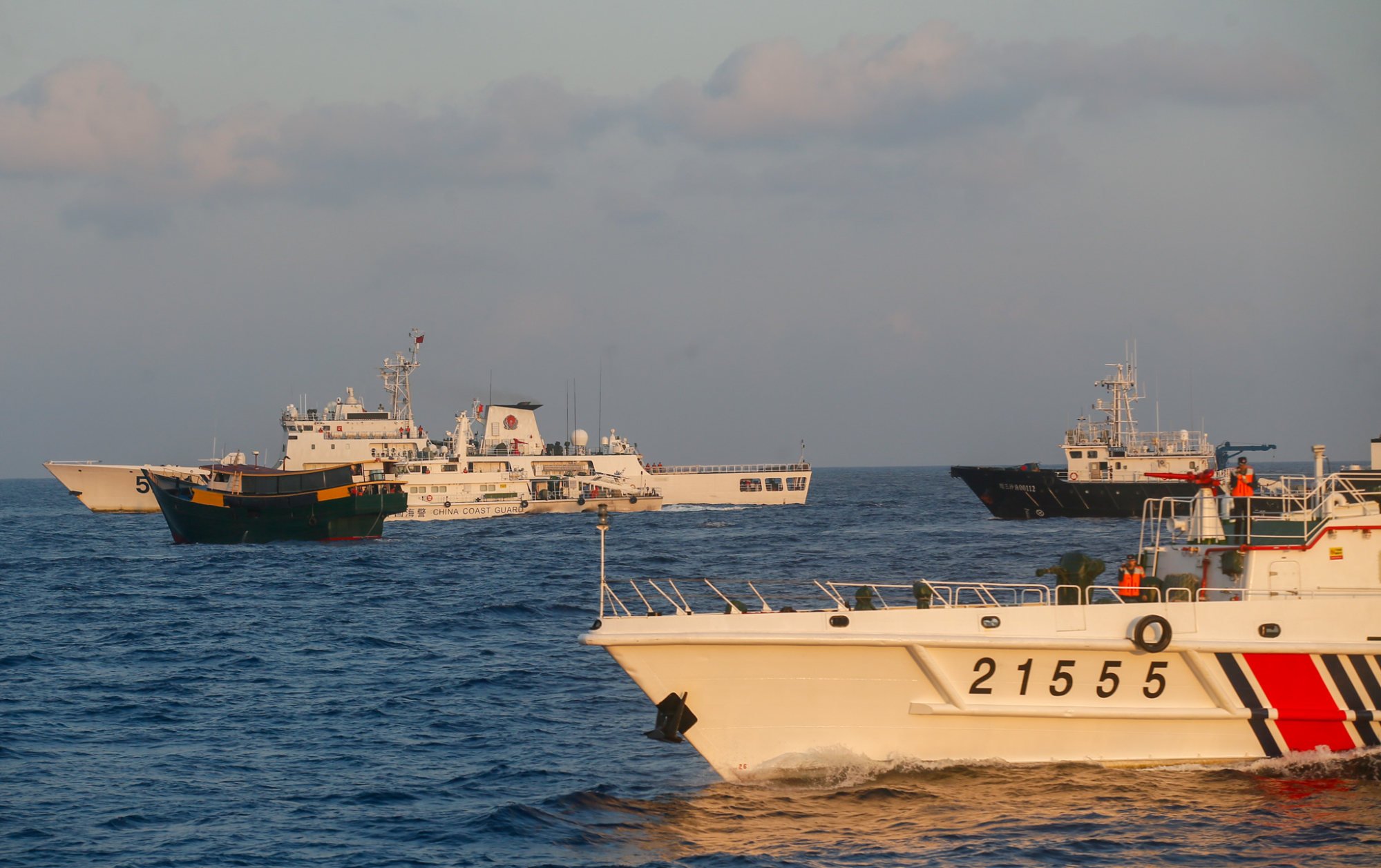
According to the phone transcript, shown to selected press members in Manila, Carlos confirmed when asked whether his superiors had approved the so-called new model.
The key points of the deal include a “1+1” model for both sides, meaning Manila would only deploy one Philippine Coast Guard vessel and a resupply boat to the shoal, while China would only launch one coastguard ship and a fishing boat.
The Philippines would also notify Beijing two days in advance on resupply missions – comprising only food and water – to troops stationed at the Sierra Madre wreck, amid close communications with both sides.
Manila reportedly followed the agreement in February, but the deal was ignored in the following month when four Filipinos sailors were hurt by water cannons fired by the Chinese coastguard.
The latest development comes days after Philippine government officials denied the existence of a new model.
Since Monday, Rear Admiral Alfonso Torres, the Naval Education, Training and Doctrine Command chief, has been designated as Western Command chief effective with Carlos on leave.
Commodore Roy Vincent Trinidad, navy spokesman for the West Philippine Sea, said on Tuesday that Beijing’s claims about the new model were “all fabricated … to divert attention from their violations of international law and to cause divisiveness among us Filipinos”.
“I call them zombie stories – long dead but revived from the grave; the best approach is to put these stories where they rightfully belong – in the grave, never to be heard again,” he said.
The West Philippine Sea is Manila’s term for the section of the South China Sea that defines its maritime territory and includes its exclusive economic zone.
Ramon Beleno III, head of the political science and history department at Ateneo De Davao University in southern Davao City, told This Week in Asia that what the Chinese released to the public was only propaganda.
“They are looking for a way out. They are in the hot seat because of what they are doing, and they are trying to defend themselves to global public opinion. They are trying to portray that the Philippines is also at fault,” he said.
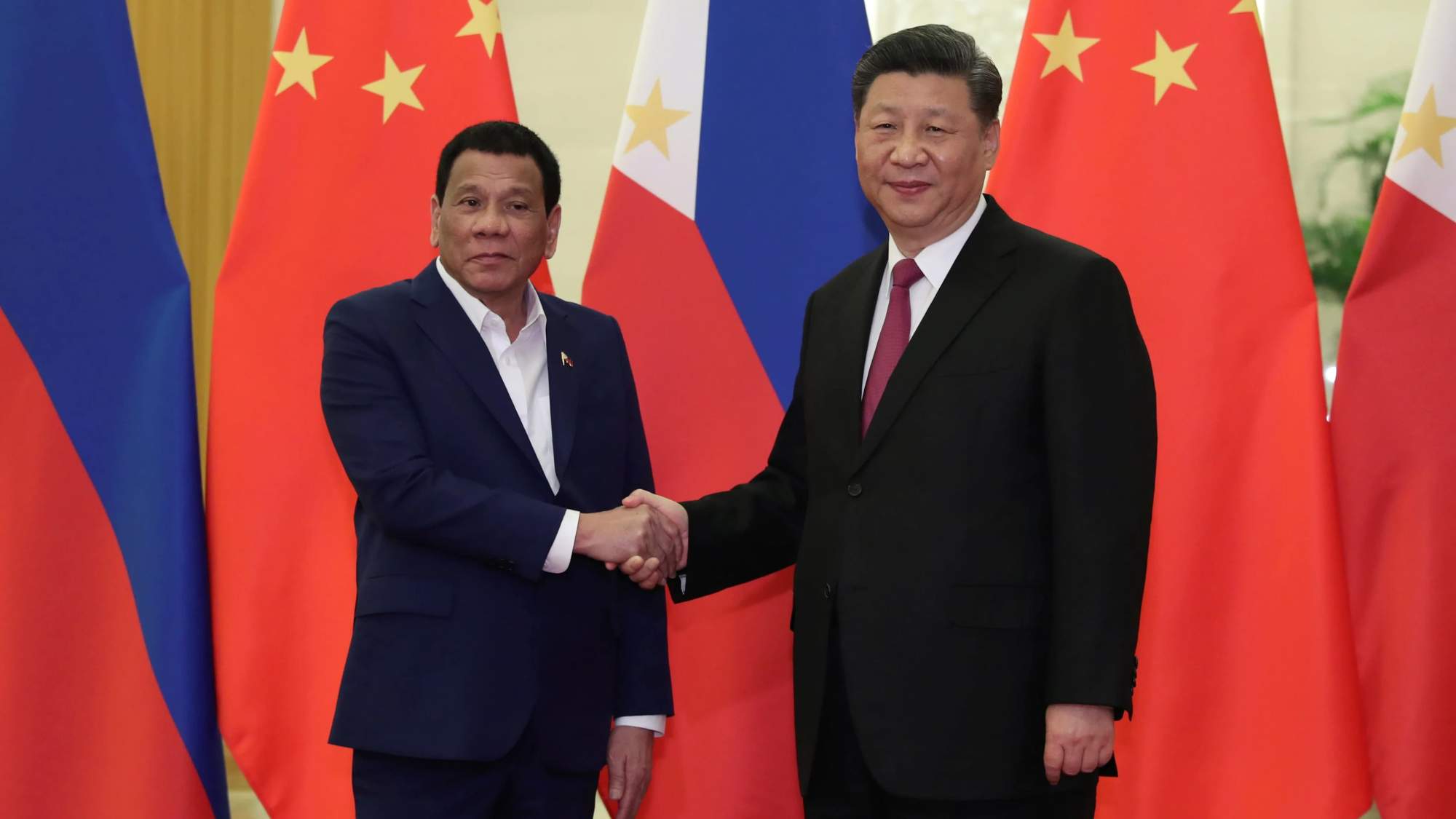
Asked about the difference with the “gentleman’s agreement” reportedly struck between former Philippine leader Rodrigo Duterte and Chinese President Xi Jinping, Beleno said China’s current narrative on the new model was established between two individuals.
“That’s personal to Carlos. I don’t think he has the power or mandate to enter into such an agreement. What Duterte entered into has a mandate because it’s between two heads of states. There’s an effect because he was trying to pacify the circumstances to negotiate,” he noted.
The unwritten agreement was first mentioned by former Duterte spokesman Harry Roque, who said that, while he was in office, Duterte had made a private deal with Xi in which Beijing would not build any new military outposts in the disputed waters of the South China Sea.
In return, Manila would not send construction materials to repair the BRP Sierra Madre.
“But the one released by China now, I don’t know what they are trying to point out. The public needs to know what they talked about. How did the conversation start? Was it a regular process of just a conversation of two individuals?” Beleno said.
“I think there’s no treason to what Carlos did because what he said to a Chinese diplomat – if it exists – has no mandate. I don’t think it’s on behalf of the Philippines or Armed Forces of the Philippines. It’s just a conversation between the two of them.”
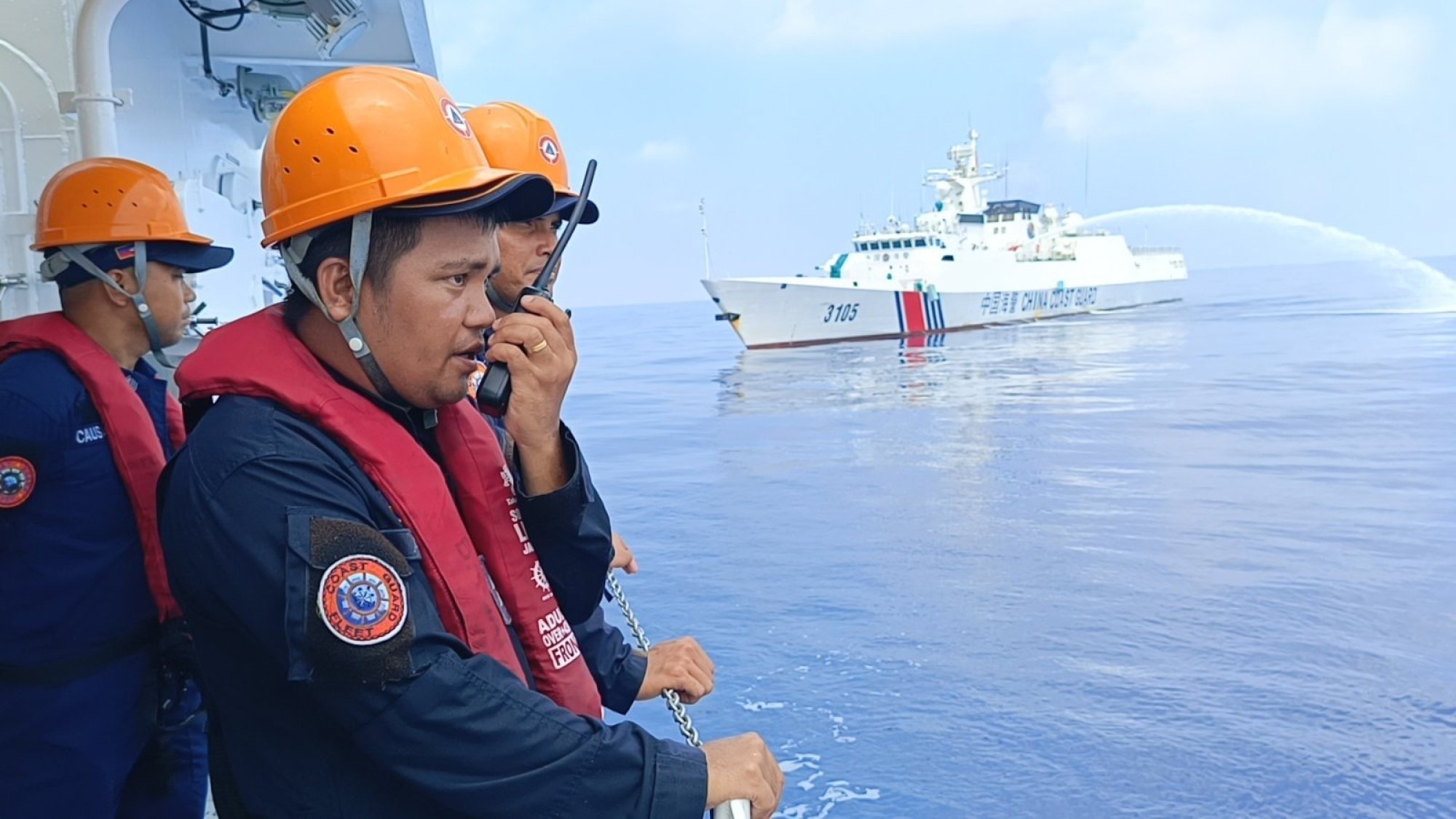
Edmund Tayao, a political analyst and professor at the San Beda Graduate School of Law in Manila, told This Week in Asia he shared the view that the latest development was only propaganda by the Chinese side.
“All the more we are playing into the trap. They really want us to be divided,” he said when asked if the issue had to be probed by the Senate or the Philippine military.
Tayao likewise warned that any agreement could only be struck between heads of states, a point “everyone who understands formal official diplomatic relations with China” should be familiar with.
“In this particular case, at most, if at all, the supposed phone call happens, it is still in the realm of negotiation. It cannot be considered an agreement,” he argued. “I know Vice-Admiral Carlos is not going to act … on his own in this very sensitive issue.”
In a statement on Tuesday, the Philippines’ Department of Foreign Affairs (DFA) said only President Ferdinand Marcos Jnr could approve or authorise agreements on matters pertaining to the West Philippine Sea and the South China Sea.
“In this respect, the DFA can confirm that no cabinet-level official of the Marcos Administration has agreed to any Chinese proposal pertaining to the Ayungin Shoal,” it added, referring to the local name for the disputed area.
“China should desist from disseminating such disinformation or insinuations against Philippine officials, which create confusion among the Filipino public and distract from the real issues created by China’s unfounded claims and illegal and aggressive actions in our waters,” the DFA said.
Military spokeswoman Colonel Francel Margareth Padilla said Carlos’ leave of absence had nothing to do with his alleged involvement in the latest controversy.

